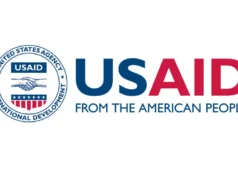Canada Immigration: How To Apply For Canada’s Start-Up Visa
Table of Contents
Asia and Africa are just leaders for entrepreneurship with increased technology hubs and booming with start-ups that might take advantage of the use of Canadian and American markets through Canada’s Start-Up Visa program.
That explosive growth in tech companies in Africa comes as Canadian companies are poised for major growth in the digitization of these operations in the post-COVID-19 world.
“The top priority for Canadian businesses in 2021 is digital resiliency and our predictions reflect that priority,” says Tony Olvet, International Data Corporation’s group vice-president of research.
“The pandemic caused an accelerated go on to digital technologies and services in large part to serve customers and support employees in new ways. But as business and IT leaders look ahead to the post-pandemic economy, we don’t expect them to return to the old means of conducting business,” he says. “Digital investments will continue, and the thought of resiliency will remain at the top of the executive agenda.”
International Data Corporation is forecasting that Canadian organizations will accelerate the digitization of these workflow 2 to 3 times faster compared to the automation of this physical environment in the coming year. By the finish of 2021, half of the Canadian large enterprises are anticipated to be using artificial intelligence for process and workflow automation.
Meaning there’s a lot of chance for Nigerian entrepreneurs who wish to arrive in Canada and set up a small business under Canada’s Start-Up Visa program.
Budding entrepreneurs who wish to benefit by starting businesses in Canada through the Start-Up Visa program could possibly get Canadian permanent residence should they qualify as immigrant entrepreneurs.
Beneath the Canada Start-Up Visa program, three kinds of private-sector investors are believed: angel investors, venture capital funds, and business incubators. A designated venture capital fund must confirm it is investing at the very least $200,000 into the qualifying business.
Candidates also can qualify with several commitments from designated venture capital funds totaling $200,000. A designated angel investor group must invest at the very least $75,000 into the qualifying business.
Candidates also can qualify with several investments from angel investor groups totalling $75,000. A designated business incubator must accept the applicant into its business incubator program. It’s as much as the immigrant investor to produce a feasible business plan that’ll meet up with the due diligence requirements of those government-approved designated entities.
That’s usually completed with assistance from business consultants in Canada’s start-up ecosystem with oversight from experienced corporate business immigration lawyers who will ensure a start-up’s business concept meets all industry-required terms and conditions.
Candidates applying underneath the Start-Up Visa program can initially arrive in Canada on a work permit supported by their designated Canadian investor before their application for permanent residence is finalized.
The fundamental government-imposed candidate eligibility requirements for the Start-Up Visa program are:
- a qualifying business;
- a commitment certificate and letter of support from the designated entity;
- sufficient unencumbered, available and transferable settlement funds to generally meet settlement funding, and;
- proficiency in English or French at the minimum Canadian Language Benchmark level 5. However, it frequently occurs that higher quantities of English are required to generally meet due diligence requirements imposed by designated entities.
Ottawa doesn’t give financial support to new Start-Up Visa immigrants. When candidates apply, they should show evidence they have the finances to aid themselves and their dependents in Canada. This money can not be borrowed.
Additionally, it often occurs that candidates will have to show additional, sufficient funding to generally meet start-up costs of these business projects, as a condition of investment with a designated entity (VC or Angel).
This really is a location where experienced legal consulting will prove invaluable. The total amount of settlement funding needed is dependent upon how big is the candidate’s family.
Settlement Funds Needed Under Start-Up Visa Program
| Amount of household members | Funds required |
| 1 | $12,960 |
| 2 | $16,135 |
| 3 | $19,836 |
| 4 | $24,083 |
| 5 | $27,315 |
| 6 | $30,806 |
| 7 | $34,299 |
| * Each additional member of the family | $3,492 |
Certainly, the Start-Up Visa program keeps growing in popularity. In 2019, the sum total amount of new permanent resident-approved admissions reached 510, significantly more than double the 250 welcomed in 2018. The figures have now been increasing steadily throughout the last five years.
New Permanent Residents Through Start-Up Visa Program
The Start-Up Visa program also represents an essential choice for international students, lots of whom don’t qualify for permanent residence through the skilled worker immigration streams. While Ottawa has brought steps to gear up the Express Entry system to favour international students, they’re certainly not guaranteed to qualify for a coveted Invitation to Apply underneath the Comprehensive Ranking System (CRS).
The minimum score needed seriously to qualify has often been over 470, leaving many students struggling to qualify despite the support of a job offer from a Canadian employer. These candidates can either sit in the Express Entry pool and hope the minimum score underneath the CRS falls or they could make the transition from temporary to permanent residence. This really is where in actuality the Start-Up Visa program becomes an option.
Unlike another federal and provincial-level entrepreneur program which requires no less than 1 or 2 years of previous experience either owning a small business or in top-level management, the Start-Up Visa program doesn’t require previous management experience.
The support of a government-designated entity is enough. And that support may be either financial or in the shape of accepting the candidate into a small business incubator program. Immigrants who avail themselves of the Start-Up Visa program consistently report it is quick, both for the first work permit and permit residence application.
Letter of Support
With a feasible start-up business project, an immigrant entrepreneur can get it to take about 4-6 months to secure a commitment certificate or letter of support from the designated entity. Once that letter of support is received, the application for permanent residence may be submitted.
It will likely then take approximately 18-months to finalize the application to the issuance of a lasting residence visa. For the candidate to qualify for permanent residence:
- The intended business must certainly be incorporated and carrying on business in Canada;
- The candidate must own at the very least 10 percent of the voting rights in the corporation, and;
- No other person holds 50 percent or even more of the voting rights in the corporation.
As many as five candidates may have their permanent residence application supported by exactly the same business investment. But that will feature a risk. Certain candidates might be designated as necessary to the business. If the essential candidates withdraw their applications or are refused, all the candidates underneath the same business investment might find their applications terminated.
Surveys suggest Start-Up Visa candidates usually go to flourish in Canada, with regards to growing their business, attracting further investment, networking, or selling their business for a profit.









